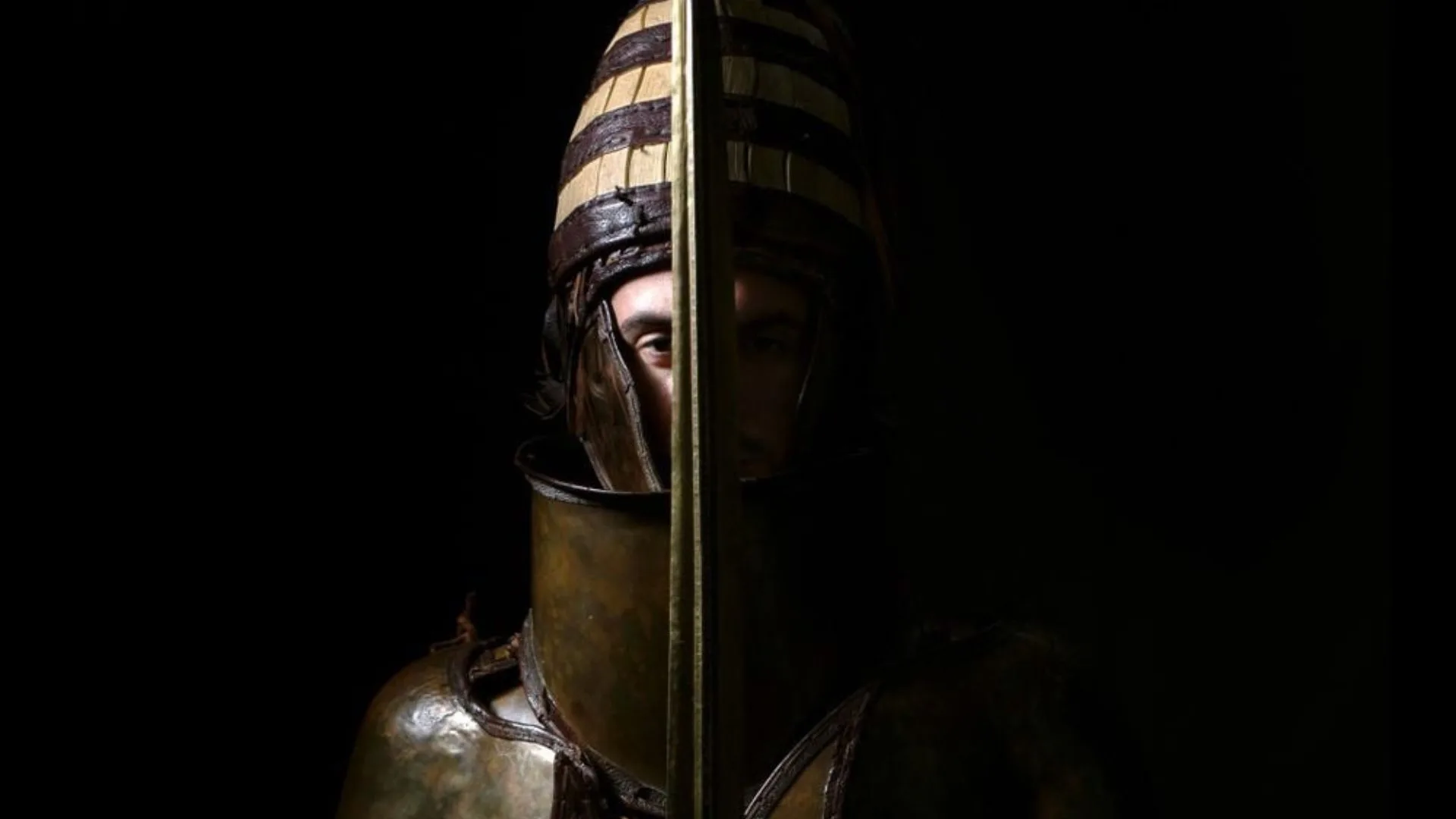For decades, archaeologists have wondered whether a suit of Bronze Age armor found in Greece—boar’s tusk helmet, bronze plates and all—would really have protected its wearer in combat.
According to smithsonianmag, after allowing 13 soldiers to test a replica of the suit, researchers have confirmed the 3,500-year-old design’s effectiveness in battle.
The armor, discovered in the southern Greek village of Dendra in 1960, is one of the oldest complete suits of European armor. It was found near Mycenae, an ancient city about 70 miles west of Athens, the center of the Mycenaean civilization, which dominated Greece from about 1600 to 1100 B.C.E.
Dating to the 15th century B.C.E., the Dendra armor is composed of 15 copper-alloy sheets held together with leather, which covered the wearer from neck to knees, reports the Telegraph’s Sarah Knapton. The suit is complete with arm and leg guards and a helmet decorated with pieces of boar tusk. Since the time it was discovered researchers were asking questions whether the armor was purely for ceremonial purposes, or for use in battle,” researcher Andreas Flouris, a professor of physiology at the University of Thessaly in Greece, and his colleagues tell Live Science’s Jennifer Nalewicki.
Other studies have concluded that the suit was battle-worthy, per National Geographic, but Flouris and his colleagues’ recent experiment is the first of its kind. They gathered volunteers from the 32nd Marines Brigade of the Hellenic Army—Greece’s military—and fed them the pre-battle meal of a Mycenaean soldier: bread, beef, goat cheese, green olives, onions and red wine. The marines were outfitted in replicas of the Mycenaean suit, given replicas of Mycenaean cruciform swords, and placed in a temperature-controlled room set to a geographically accurate 64 to 68 degrees Fahrenheit.

Then, the researchers conducted an 11-hour simulation, recreating battles that might have been fought in Late Bronze Age Greece. The “combat simulation protocol” was choreographed based on descriptions of the Trojan War from Homer’s Iliad.
The volunteers simulated duels between foot soldiers, as well as soldier-chariot and chariot-ship encounters. Researchers found that the armor withstood these challenges without straining or limiting its wearer.
“We now understand that despite its cumbersome appearance, the armor is flexible enough to allow almost every movement of a warrior on foot and resilient enough to protect the wearer from most blows,” the researchers concluded in the study.
Source: smithsonianmag
